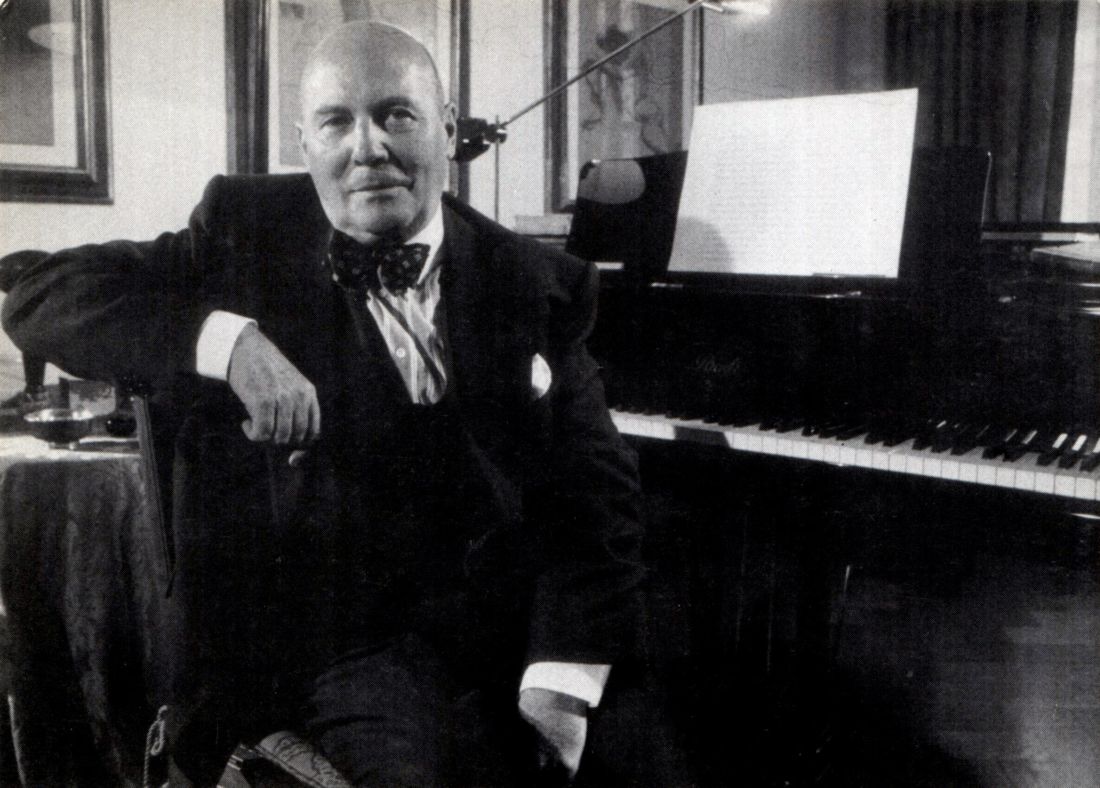Hans Werner Henze: 10th anniversary of his death in 2022

For me, he was a composer who knew how to deal with the tonal possibilities of the orchestra like no other
— Christian Thielemann, Conductor
In memory of one of the most important composers of the 21st century, who died on October 27th 2012, we present to you seven works from Hans Werner Henze’s late creative period. The late oeuvre was characterized by the perfection of his already well-known control of compositional means and musical idioms, a mosaic-structure of the large form, and gestural musical motifs that overlap in strong polyphony.
In a famous quotation, Henze once said, “Schön ist nur, was von der Norm abweicht“ (Beautiful is only what deviates from the norm) – in this way, we can experience the beauty of his music:
L’Upupa (2003) 2 hr 20’
Henze's fairy tale opera captivates with a rich score full of fascinating sounds - a mélange of wit and verve offering a fulfilling experience for the production team, cast and audience alike.
The Grand Vizier of Manda sends his three sons out to find his beloved hoopoe which has disappeared. Al Kasim, the heroic son, discovers the bird, but before he can reclaim it, he must complete a series of challenges. In his quest, he encounters the love of a beautiful woman, finds a magical box and experiences the murderous betrayal of his brothers.
Phaedra (2007) 1 hr 20’
Hans Werner Henze's final opera Phaedra (libretto by Christian Lehnert) was written in 2007 and premiered in the same year at the Berlin Staatsoper Unter den Linden.
Phaedra is a tale of love, jealousy, and destruction between gods and mortals as Phaedra’s love for her stepson Hippolytus brings catastrophe. Henze’s two-act concert opera takes its audience beyond the end of the original text into a surreal, fantastic landscape where Hippolytus is brought back to life but imprisoned by Artemis. He is fought over by Phaedra and Aphrodite, but their struggles are futile as violence and jealousy drive the opera towards its transcendent climax, where death is a mere journey through the underworld to life in another dimension.
Part IPart II
Opfergang (Immolazione) (2009) 45’
Opfergang (Immolazione) is a musical adaptation of Franz Werfel's dramatic poem "Das Opfer", which Henze had wanted to set to music since the early 1950s.
On the edge of a large city, at midnight, a runaway dog, apparently from a good background, meets a wild man on the run. Pursued by a group of policemen, the stranger in his distress and panic kills the little dog. Both are now existentially changed: the dog in its transcendence and the stranger in the realization of his unfounded deed. This deep tragedy is driven by extremely dynamic music that gives this concert piece a strong dramatic tension. It is set for tenor, bass, baritone, vocal quartet, concert piano and orchestra.
Ouverture zu einem Theater (2012) 5’
Henze's Ouverture zu einem Theater is his last composition and was commissioned by the Deutsche Oper Berlin, with funding from the Ernst von Siemens Musikstiftung. The world premiere took place one week before his death in 2012 at the gala anniversary concert, "100 years of the Deutsche Oper Berlin. Since the 1960s Henze has enjoyed a fruitful collaboration with the Deutsche Oper Berlin, which has significantly contributed to his success by many world premieres.
In the Ouverture, drumbeats like fireworks emerge from silence and elegiac melodies are interrupted by dissonant breaks, progressing to a furious finale.
The blue hour, which refers to the darkening blue light after sunset and before nightfall lasts a magical seven minutes in Hans Werner Henze's 16-voice serenade. Gently flowing, the work captures the special mood of the light. The instrumentation, including alto flute, cor anglais, bass clarinet and Wagner tuba and muted strings, emphasizes in its tonal aesthetics the dimly shimmering muted beauty of peaceful fading. In Henze’s words, in this moment everything appears "clear, not indistinct.”
Ideally programmable as a modern evening counterpart to Brahms' serenades, Henze draws the listener into the magical spell of the blue hour.
Fünf Botschaften an die Königin von Saba (2004) 17’
Derived from the opera L'Upupa, the five short movements represent a versatile and complex lyrical distillation with a spectrum of sonic moods. Playful interwoven passages range from exotic and elegiatic to belligerent and playful without neglecting the broader musical arcs.
Composed in 2003 and commissioned by Radio France (first performed by the Orchestre National de France), the piece requires great technical finesse from the orchestra both the precision of chamber music and the cultivation of a full symphonic soundworld. This stirring spectacle of contemporary music is perfectly suited to embed standard repertoire, such as solo concertos and symphonies.
Sebastian can be seen as a key work of Henze’s instrumental writing. The music follows very closely to the Georg Trakl poem "Im Park,"“as if someone with a movie camera tries to capture the course of events” (Henze).
The three movements refer to the three verses of the poem. In some ways, the music is very concrete: we can hear the evening bells which close verse 1 and 2 or we can hear the oboes of the shepherds as part of the Christmas vision at the beginning of verse 2. Clear moods are implied by the music, from melancholy to ecstatic.
At other times, the music follows its own dramaturgy and the composer opts to interpret rather than depict the text. Each of the three movements leads to a vivid textual and musical climax.
(Dec 2020)
